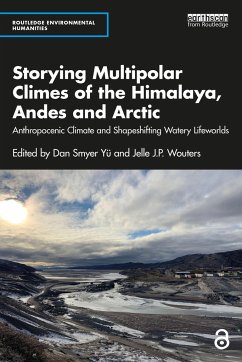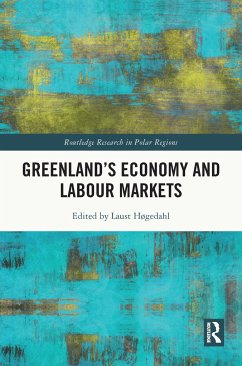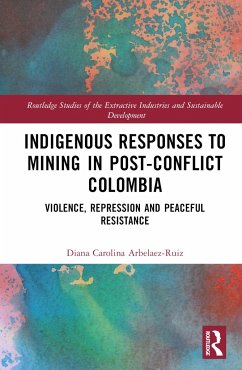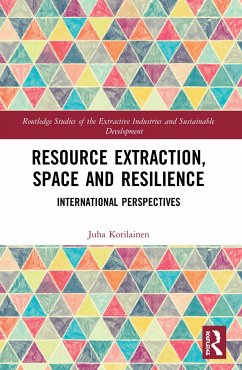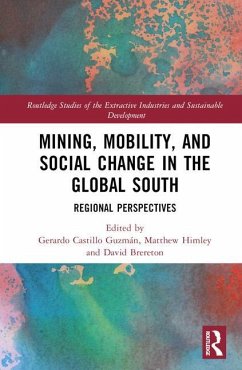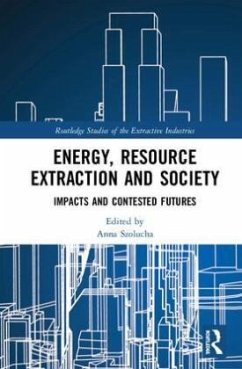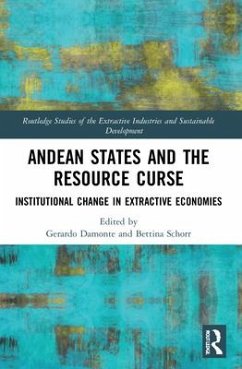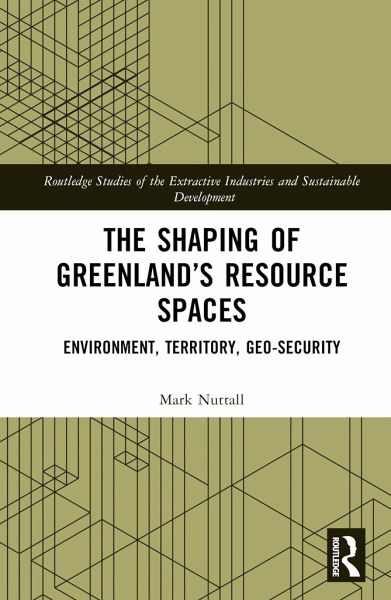
The Shaping of Greenland's Resource Spaces
Environment, Territory, Geo-Security
Versandkostenfrei!
Versandfertig in 6-10 Tagen
144,99 €
inkl. MwSt.
Weitere Ausgaben:

PAYBACK Punkte
72 °P sammeln!
The book examines ideas about the making and shaping of Greenland's society, environment, and resource spaces.It discusses how Greenland's resources have been extracted at different points in its history, shows how acquiring knowledge of subsurface environments has been crucial for matters of securitisation, and explores how the country is being imagined as an emerging frontier with vast mineral reserves. The book delves into the history and contemporary practice of geological exploration and considers the politics and corporate activities that frame discussion about extractive industries and ...
The book examines ideas about the making and shaping of Greenland's society, environment, and resource spaces.
It discusses how Greenland's resources have been extracted at different points in its history, shows how acquiring knowledge of subsurface environments has been crucial for matters of securitisation, and explores how the country is being imagined as an emerging frontier with vast mineral reserves. The book delves into the history and contemporary practice of geological exploration and considers the politics and corporate activities that frame discussion about extractive industries and resource zones. It touches upon resource policies, the nature of social and environmental assessments, and permitting processes, while the environmental and social effects of extractive industries are considered, alongside an assessment of the status of current and planned resource projects. In its exploration of the nature and place of territory and the subterranean in politicaland economic narratives, the book shows how the making of Greenland has and continues to be bound up with the shaping of resource spaces and with ambitions to extract resources from them. Yet the book shows that plans for extractive industries remain controversial. It concludes by considering the prospects for future development and debates on conservation and Indigenous rights, with reflections on how and where Greenland is positioned in the geopolitics of environmental governance and geo-security in the Arctic.
This book will be of great interest to students and scholars of environmental anthropology, geography, resource management, extractive industries, environmental governance, international relations, geopolitics, Arctic studies, and sustainable development.
It discusses how Greenland's resources have been extracted at different points in its history, shows how acquiring knowledge of subsurface environments has been crucial for matters of securitisation, and explores how the country is being imagined as an emerging frontier with vast mineral reserves. The book delves into the history and contemporary practice of geological exploration and considers the politics and corporate activities that frame discussion about extractive industries and resource zones. It touches upon resource policies, the nature of social and environmental assessments, and permitting processes, while the environmental and social effects of extractive industries are considered, alongside an assessment of the status of current and planned resource projects. In its exploration of the nature and place of territory and the subterranean in politicaland economic narratives, the book shows how the making of Greenland has and continues to be bound up with the shaping of resource spaces and with ambitions to extract resources from them. Yet the book shows that plans for extractive industries remain controversial. It concludes by considering the prospects for future development and debates on conservation and Indigenous rights, with reflections on how and where Greenland is positioned in the geopolitics of environmental governance and geo-security in the Arctic.
This book will be of great interest to students and scholars of environmental anthropology, geography, resource management, extractive industries, environmental governance, international relations, geopolitics, Arctic studies, and sustainable development.




